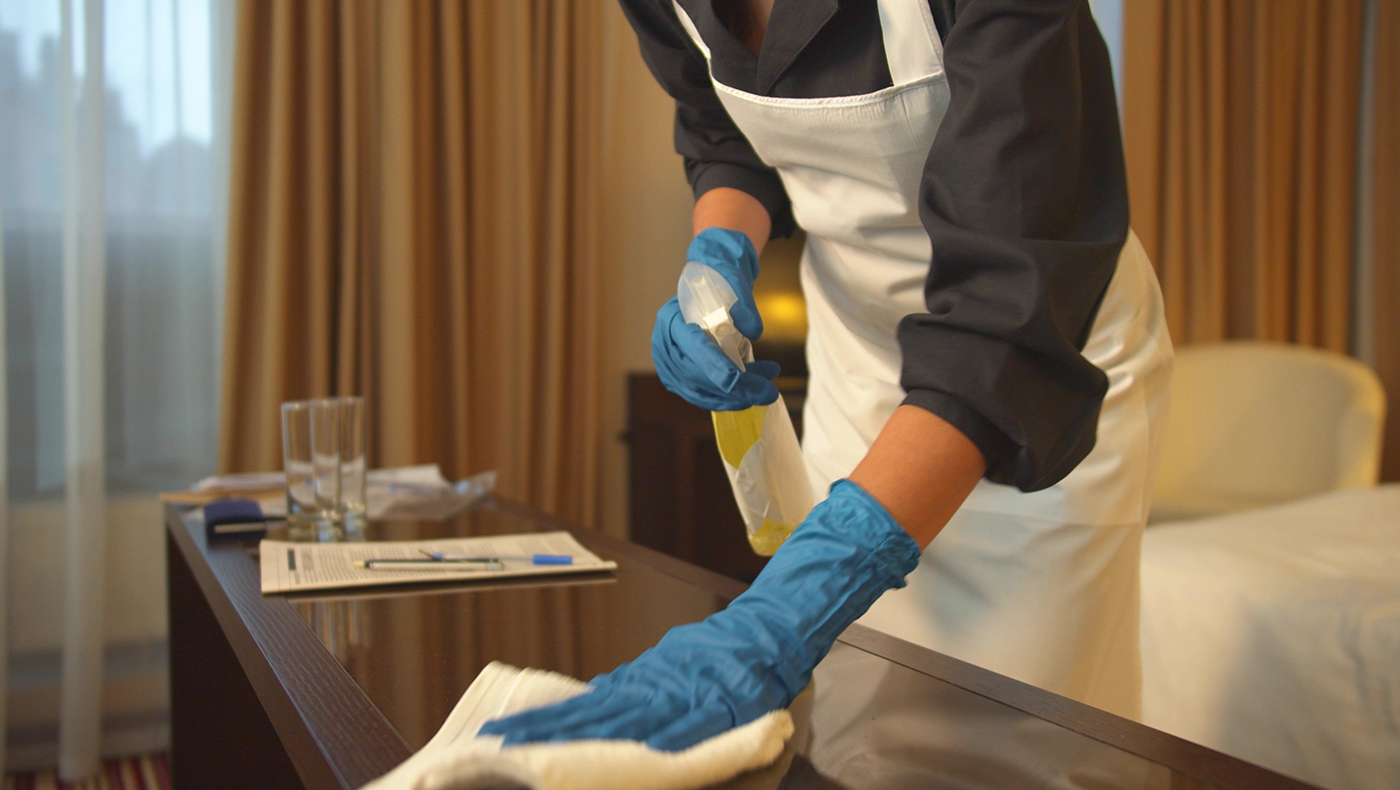This winter holiday season, millions of Americans are making tough decisions about whether or not to travel in the midst of the COVID-19 pandemic. Since good hygiene practices are one of the best ways to stay safe from the virus, cleanliness is a key part of these considerations. Research from the University of Delaware’s Sheryl Kline can help these would-be travelers to understand how to say healthy and safe during a hotel stay, as well as the ways that their own perceptions of cleanliness could be misleading.
“This study empirically proved that it is almost impossible to tell if an accommodation is clean by looking at it,” said Kline, who is the Aramark Chaired Professor in the hospitality department at UD’s Alfred Lerner College of Business and Economics. “Anyone can do a visual inspection of a room, and it can look clean. Just because it looks clean does not necessarily mean that it is clean.”
In studying this, Kline co-wrote the paper “Does hotel cleanliness correlate with surfaces guests contact?” with UD assistant professor of hospitality Jing Ma and three other hospitality professors from Purdue and James Madison University. Published in the International Journal of Contemporary Hospitality Management, the paper has also been referenced in many trade journals and industry associations to help hotels establish cleaning protocols during the pandemic.
Of this impact, Kline said: “It is very special and rewarding when industry values one’s research and uses the findings to help people and make the world a better place. This was one of those pieces of research.”
The study surveyed hotel guests from across the United States, asking what areas they perceive as “high-touch” and which as “low-touch.” Understandably, guests considered the high-touch areas to be the most important when making a judgment about a hotel’s cleanliness.
“Most of the high-touch areas were surfaces or things around the bed or bathroom that guests might touch with their bare hands or body and might be expected to be touched for longer periods of time (such as for sleeping),” Kline said. “Most of the low-touch areas appeared to be areas that guests might touch only when it is necessary. For instance, guests might touch a bathroom sink basin if they drop something in it.
“On the other hand, there were only four public area sites (lobby elevator buttons, inside elevator buttons, inside door handle at the hotel entrance and buttons of an ice machine) that were perceived as high-touch areas among the 18 public area sites in hotels,” Kline continued. “These areas would likely be viewed as surfaces that guests would need to touch with their bare hands to go to their guestroom. Most other public sites were perceived as low-touch areas. These areas might be touched by guests only when it was necessary.”
However, just because guests perceived an area to be high touch did not mean that it was most likely to be dirty. Kline’s team used adenosine triphosphate (ATP) tests to compare the actual cleanliness of items with guests’ perceptions of them, and this comparison found a number of disparities.
For example, while guests rightly perceive beds and blankets to be the highest touch areas, Kline’s team found them to be some of the cleanest spots within hotels due to standard laundry practices. In another example, guests ranked the inside of the guest-room door as a very low touch point, but it was found to be in the middle range for ATP test-detected contaminants.
For this reason, Kline explained, it’s important for guests to follow safety protocols when staying in hotels. She offered this list of tips for staying safe and healthy while staying in a hotel:
- Find out if your hotel is following the recommendations of the CDC and/or the American Hotel and Lodging Association’s Stay Safe practices. As Kline explained: “The major hotel chains have agreed to follow these practices and have created training programs and hygiene protocols that are similar to what you would find in a healthcare facility. “
- Don’t be afraid to call ahead and ask questions, like: Is the staff required to wear face coverings? How are they practicing social distancing? Are staff using disinfecting cleaning products? If so, how often?
- If possible, request a “no housekeeping service” option. This means that no one else will enter your room during your stay.
- You can also ask to stay in a guestroom that has been vacant for at least 24 hours before your stay begins.
- While the naked eye can’t tell you if a room is disinfected, you can confirm that it looks clean and neat, free of dust and hair. “If those basics are not met, you can be assured the room was not cleaned,” Kline said.
- If you’re concerned, take the extra step and do some cleaning yourself upon arrival. Bring your own cleaning supplies and sanitizing products and re-disinfect those high-touch areas. In particular, these include doorknobs, light switches, telephones, remote controls, tabletops and bathroom fixtures.
- As always, wear a mask when in public and especially indoors, wash your hands frequently with soap and warm water and avoid touching your face.




